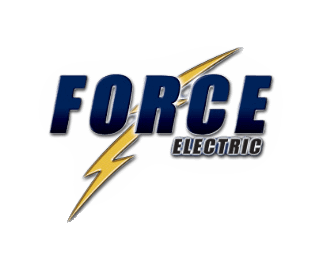-
Frequently Asked Questions
-
What Areas Do You Serve?We serve all of Hillsborough County.
-
I Have Two-Prong Outlets In My House; Can I Change Them Out to Three-Prong Outlets?No. Two-prong outlets have no grounding wire. When you install a three-prong outlet instead of a two-prong outlet, you have no grounding protection. There is a proper way to handle this problem, contact us today for more information.
-
What Is Trouble Shooting?Troubleshooting is the investigative time necessary to locate the source of your electrical issue. Our technicians are trained to get to the bottom of your electrical problem quickly and accurately. Our technicians will listen to your concerns, examine and test your electrical wiring and give you an accurate estimate of the work that needs to be done.
-
What Should I Do If My Panel Is Making Strange Noises and Or Strange Smell?Sizzling noises and strange smells could mean your home is in immediate danger of an electrical fire. Give us a call and we will be glad to help you.
-
Can I Replace a Light Fixture with a Ceiling FanYes, but you must make sure the electrical box is properly supported and rated for the weight and torque of the ceiling fan you will be installing.
-
I Have Aluminum Wiring, Do I Need to Rewire My House
FIXING THE PROBLEM
Aluminum wiring can be replaced or repaired to effectively and permanently reduce the possibility of fire and injury due to failing (overheating) wire connections and splices. It is highly recommended that you hire a qualified electrician to perform this remediation.
- Complete replacement to copper wiring
- COPALUM method of repair
- AlumiConn Connector method of repair
-
My Home Has Knob and Tube Wiring, Is It Safe?
Knob and Tube wiring was an early standardized method of electrical wiring in buildings, in common use in North America from about 1880 to the 1940s. The system is considered obsolete and can be a safety hazard.
Building Insulation:
Knob and Tube wiring is designed to dissipate heat into free air, and insulation will disturb this process. Insulation around Knob and Tube wires will cause heat to build up, and this creates a fire hazard. The 2008 National Electrical Code (NEC) requires that this wiring system not be covered by insulation. Specifically, it states that this wiring system should not be in hollow spaces of walls, ceilings and attics where such spaces are insulated by loose, rolled or foamed-in-place insulating material that envelops the conductors.
-
How Can I Pay For My ServicesWe accept cash, checks, Visa, MasterCard, American Express, and Discover. We also have financing options available for qualified customers.
-
Do You Do Small JobsYes, we do small jobs. We specialize in residential service. We can replace a light or ceiling fan. We can troubleshoot an electrical problem. We can replace a receptacle, switch or dimmer. We can replace batteries in smoke alarms or light bulbs that are difficult to reach. No job is too small.
-
Smoke Detector Chirping?
- Batteries may need to be replaced
- Smoke alarm sensing chamber may be dirty
- Humidity, steam or other environmental factors
- An electrical condition may be causing power to the unit to be interrupted
- Alarm may have reached its end of life
-
Recommended Surge Protection Levels
Level I: Main Zone Protection – This unit installs on the main breaker box. It provides protection from incoming surges occurring from the utility company.
Level II: Independent surge protection at point of use – Wherever you have sensitive electronics, plasma TV’s, sound systems, or computers, you should have additional surge protectors. These will provide another level of protection; protection from inside surges. That’s right, you homes own electronics, motors, even your refrigerator can induce surges on the circuits that can damage or even destroy other electronics in your home.
-
Federal Pacific (FPE) and Zinsco Panels
Federal Pacific Electric (FPE) was a large manufacturer of electrical breaker boxes or load centers and panelboards from the 1960’s to the 1980’s era. Problems arose from these products culminating in lawsuits in the early 1980’s and the withdrawal of the product line from the market by its producer. The consumer product safety commission has produced several case studies of the products and their hazards.
If you have FPE breakers or load centers, or even panel boards, our master electricians highly recommend that you have them replaced IMMEDIATELY! Federal Pacific Electrical breakers are well-documented fire hazards and have been proven to “lock-on” during an overload condition, just the opposite of what a breaker is designed to do!
Zinsco circuit breakers have issues with improper heat dissipation, which can lead to burning of the circuit breaker itself. Further Zinsco breaker boxes use an un-anodized or un-plated aluminum bus bar arrangement. In moist climates this can lead to excessive oxidation, whereby the bus bars actually reduce in size as the oxidation process continues. This can lead to loose connections, which may result in arcing or burning at the bus bar/circuit breaker connection point.
We highly recommend if you have a Zinsco breaker box, that you replace it immediately. -
Why Do I Have ARC Fault Circuit Breakers (AFCI)
Electrical Arcing is a serious problem. Every year thousands of fires occur in homes as a result of electrical arcing. An electrical arc is extremely hot and can cause electrical fires around the affected area. AFCI breakers are intended to mitigate the effects of arcing faults by de-energizing the circuit when an arc fault is detected.
CAUSES OF AN ARC-FAULT
Arc faults can occur anywhere in your electrical system as a result of:
- Overtime wires that are stapled too tightly to wood
- Damaged or worn insulation on wire
- Loose electrical connections
- Damaged plug-in appliance cords
- Accidental piercing of electrical cable behind drywall with drill bit, nail or screw
- Electrical cable staples hammered too tightly into studs during rough wiring
- Cord exposure to heat vents, sunlight, or foot traffic
-
Why Should I Have CFGI ProtectionGround Fault Protection devices, such as GFCI outlets and circuit breakers, turn off the circuit when they detect electricity flowing on the ground wire. These devices can even detect the current without ground wire being present, by using electronic calculation of any imbalance between the “hot” or “phase” wire and the “neutral” wire. If there is any difference in current between the two wires, the device will determine that the energy is going to the ground, causing it to shut off. The usual setting of these devices is five milliamps. That’s only five one-thousandths of 1 amp! 0.005 amps! Not even the smallest amount of electricity escapes these devices.
-

